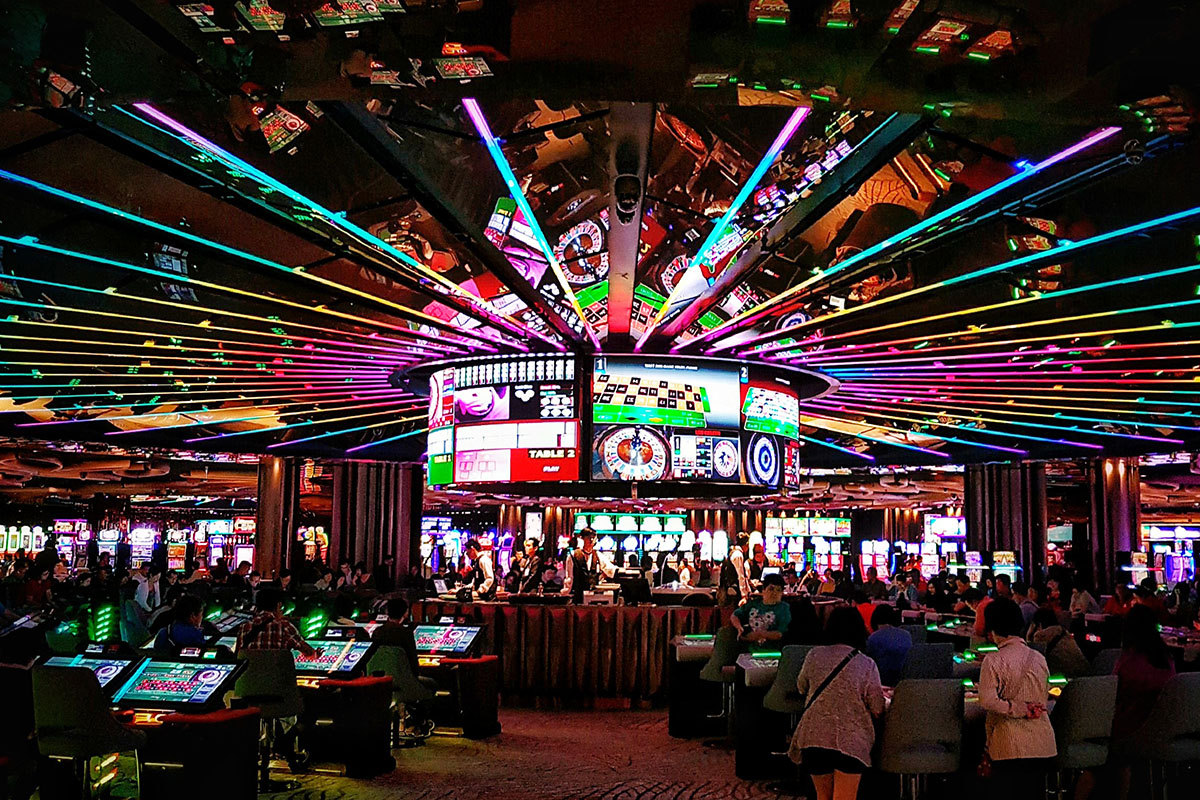Casino games have long captured the imagination of humans around the globe, becoming an important part of both fun and culture. From the shimmering lights of the Vegas Strip to the engaging experience of virtual casinos, these experiences evoke thrill, danger, and sometimes even a sense of nostalgia. They are more than simply hobbies; they have woven themselves into the fabric of our lives, influencing everything from cinema and music to clothing and writing.
The allure of casino games transcends the wagering aspect, tapping into wider themes of luck, risk, and social interaction. As players convene around a card table or spin the wheel of fortune, they engage in an timeless ritual that echoes with our shared desire for excitement and instability. This captivation has led to the rise of countless references in cinema, tracks, and video games, showcasing how deeply entrenched these activities are in pop culture. Whether it is the pressure of a legendary heist movie or the lively nightlife portrayed in videos, casino games have created a substantial niche that reflects our connection with reward.
Historical Significance of Gambling Games
Casino games have played a key role in social contexts throughout history. Originating from ancient societies, games of chance were often connected to rituals or gatherings. For instance, early iterations of gambling can be traced back to ancient Chinese and the Romans, where die games and betting on results were popular pastimes. These activities not only served as entertainment but also as methods of social interaction, facilitating relationships among individuals within societies.
As cultures evolved, so did the complexity and organization of gambling games. The creation of formal casinos in the 17th century, particularly in Italy, marked a significant shift in how games were viewed and organized. With specific spaces for gaming, the casino became a community center where people from various backgrounds gathered. This change contributed to the validation of the industry, transforming it from a mere pastime into an organized industry that influenced economy and regulations.
The impact of casino activities on popular culture cannot be overlooked. As they were brought into the limelight in literature and movies, games such as Texas Hold’em and 21 became symbols of chance, luck, and tactics. Famous figures and stories have developed around these games, illustrating societal attitudes towards fortune, wealth, and vice. This interest with gambling activities has permeated various forms of media, cementing their status in the public imagination and linking them to broader cultural stories throughout history.
Representation of Gambling Games in Media
Casino games have long been a popular theme in various forms of media, reflecting both the fascination and nuances of the world of gambling. Movies such as Ocean’s Eleven and Casino Royale portray characters who navigate dangerous scenarios, showcasing not only the appeal of the casino atmosphere but also the tactics and decisions that come with playing popular games like Texas Hold’em and 21. These movies often dramatize the exhilaration of winning and the potential repercussions of losing, encapsulating the dangers involved in betting.
TV programs have also explored the universe of casino games, often integrating them into the narrative as a backdrop for story progression and conflict. Series like Las Vegas depict the experiences of casino workers and patrons, highlighting the vibrant, often chaotic energy of the gaming floor. Docuseries featuring intense betting contests further emphasize the fascination of gambling activities, drawing viewers into the excitement and planning involved in each session. Through these representations, media not only entertains but also prompts conversations about fortune, skill, and the essence of randomness.
Gaming have increasingly integrated casino games into their design, allowing players to experience the feeling of gambling without financial exposure. Games within the domain of digital gaming often include online slot machines, online poker, and other casino favorites, creating an immersive gameplay that mirrors actual casino experiences. These virtual portrayals make gambling activities accessible to a global audience, appealing to both players who indulge and those who enjoy the rush of simulation. As a result, the portrayal of casino games in entertainment continues to shape public perception and cultural relevance, highlighting their function in society and social context.
Impact of Casino Games on Society
Gambling activities have a significant effect on society, influencing multiple facets of culture and social behavior. They often function as a venue for community engagement, where people come together to enjoy a common activity. Casino trips with friends or trips to casinos become group events that foster connections and create shared moments. This collective aspect boosts the fun value of casino games, making them a favored choice for celebrations and leisure activities.
Additionally, casino games have been portrayed in countless movies, TV series, and written works, shaping perceptions and opinions towards gambling and gaming. Icons like James Bond competing in baccarat or the high-stakes poker scenes in films have embedded these games in the shared imagination. đá gà trực tiếp This depiction often glamorizes the culture associated with gambling, attracting new players and influencing trends in both fashion and behavior. These representations can spark curiosity and lead to a more profound investigation of the intricacies of gambling.
Nonetheless, there are also negative implications linked to the widespread appeal of casino games. The allure of quick monetary gain can lead to problem gambling and economic troubles for some people. The community must contend with these consequences, promoting responsible gaming and education of the risks involved. Finding a balance between the fun aspect of casino games with the risks is vital to ensure that they remain a positive aspect of our societal fabric.
